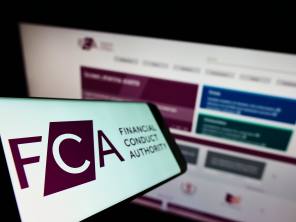

Brexit has had a positive or neutral impact on investments for three quarters of personal investors, according to research.
A study from The Share Centre, which took in responses from more than 1,500 personal investors, has revealed three quarters of personal investors said the European Union membership referendum has had a positive impact or made no difference to their investments in the two years since the vote.
This number compares to 86 per cent of personal investors expecting a negative impact or no difference to their investments when asked the same question prior to the referendum, which saw the UK vote to leave the EU.
Richard Stone, chief executive of The Share Centre, said: “We have regularly sought personal investors’ opinions on Brexit both in the lead up to and since the referendum.
"For most personal investors rising markets since the referendum result have driven portfolio values up and generally improved sentiment.
"It is certainly the case that personal investors’ fears of the impacts of a vote to Leave on the stock market have not materialised. However, fear has not gone away with a majority expecting a negative impact on markets as the leaving date approaches and over a third looking to alter their investment behaviour as a consequence.
“These opinions reinforce our view that markets will be more volatile over the months ahead and will be more prone to movements driven by sentiment and reporting of the latest twists and turns of the Brexit negotiations.
"Overall though, the fundamental global economic position remains positive and for public companies this should drive higher earnings and ultimately improved valuations. There remains a substantial amount of liquidity in the financial system and this will, in our view, act as a cushioning mechanism to any volatility. Indeed, we saw this in February when markets fell but then rebounded only to go on to set new record highs.”
The Share Centre also revealed that 56 per cent of trades the company has executed in the two years since the vote, have been ‘buys’, which demonstrates that investors have so far not been put off by the immediate volatility the result of the referendum caused in 2016.
Despite their relatively positive experience to date, personal investors’ concerns have not completely dissipated.
In fact, 60 per cent of those asked believe the lead up to leaving the European Union will have a negative impact on the stock market and 35 per cent said they are already changing, or are planning to change, their investing behaviour in the lead up to the 29 March 2019.
Gemma Siddle, chartered financial planner and director of client services for Newton Aycliffe-based Eldon Financial Planning, said: “The weakened pound following the EU referendum typically created strong growth in investment portfolios, as UK companies saw a value in overseas profits as they can back into the UK and the value of overseas companies was enhanced when denominated in sterling.
“This combined with strong growth generally in markets has given many UK investors a very good return since the EU referendum. Uncertainty around Brexit prevails but we still believe the long-term trends for markets will win through over time.”
Earlier this month, FTAdviser revealed investors have withdrawn £7.9bn from UK focused equity funds in the Investment Association (IA) universe since the UK voted to leave the European Union.
Data from the Investment Association shows a net £142m was withdrawn from the UK equity fund sector in April, bringing the total pulled from the sector since the referendum to £7.9bn.
The £142m was less than the average monthly rate of withdrawls from UK equity funds over the past year, which was £361m.
The £7.9bn of withdrawals comprises £1.8bn from funds in the IA UK Equity Income sector and £5.8bn from the IA UK All Companies sector.
The remaining £300m is from other UK equity sectors.
aamina.zafar@ft.com



